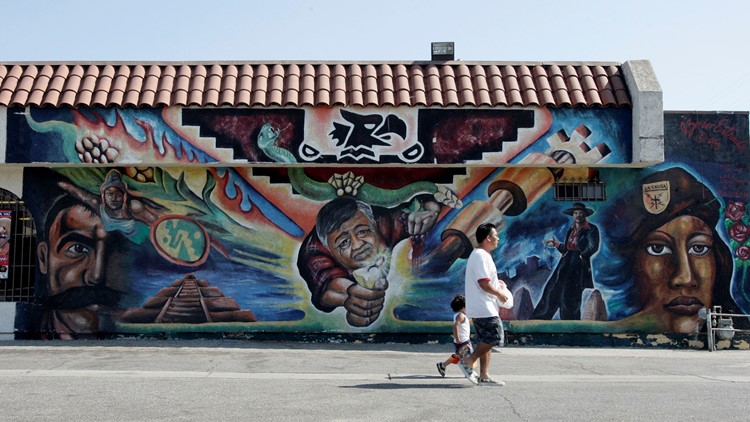PORTLAND, Ore. — For Latinos, the labels have varied over the decades depending on the historical event that has contributed to one's cultural identity.
But whether the term Latino, Hispanic, Chicano, or most recently, Latinx is the proper label to use for self-identification has been long debated.
Recently, Latinx has gained momentum through mainstream media and television shows, such as One Day at a Time, as a gender-neutral term, with the x breaking the male/female gendered grammatical tradition.
Proponents say the term is meant to be inclusive by looking beyond the male and female options. But, those who opposed to the term say it erases their Latino heritage and is an attack on the Spanish language.
Here's a brief look into Latinx.
Latinx
A Google Trends search shows that Latinx has been around since 2004, primarily on social media, and is likely to have come into use among the Latino LGBTQ+ communities.
The term spiked in June 2016 around the time of the tragedy at the Pulse nightclub in Orlando, Florida, according to Google Trends. The word was officially added to the Merriam-Webster Dictionary in September 2018.
Ed Morales, a journalist and lecturer at Columbia University’s Center for the Study of Ethnicity and Race, tells NBC News, “It’s a new badge of honor for people, especially young people, to identify across different marginalized communities and draw strength from that."
Latinx is not the first term that has sparked controversy among the Latino community. Here's a look at others that have previously been debated.
Chicano
In the turbulent 1960s, Chicano became a popular term, with the rise of the Chicano Rights Movement and opposition to the Vietnam War.
It was a time of activism in the Southwest beginning in New Mexico where Chicanos, led by Reies López Tijerina, worked to regain control of what was considered ancestral lands, most notably described in Rodolfo "Corky" Gonzales' poem "I am Joaquin." Farmworkers began to stand up for better wages and working conditions, the effort spearheaded by Cesar Chavez and Delores Huerta. Students from Texas to California began to walk out of public schools, demanding access to equal education, bilingual personnel and smaller classes.
Many Mexican-Americans choose to identify as Chicano as a badge of ethnic pride, cultural awareness and a commitment to their community, while others use the term to describe their political views.
Hispanic
Before the 1970s, Mexicans, Puerto Ricans and Cubans were categorized in the U.S. census as white, which made it nearly impossible to pull data to justify the money for each group's specific needs. It was during that time that activists began to lobby the U.S. Census Bureau to create an all-inclusive term.
In 1975, a group of diverse group federal employees part of the Ad Hoc Committee on Racial and Ethnic Definitions coined the term Hispanic. The term officially appeared in the 1980 census forms with additional options for Mexicans, Mexican-Americans, Chicanos, Puerto Ricans, Cubans and other, which eliminated the confusion seen in the previous census.
The word was publicized through Spanish language media in a series of ads.
Latino
Latino eventually became the catch-all term used to include Mexicans, South Americans and Central Americans (Spanish-speaking). The origins aren’t as clear or widely studied as the term Hispanic.
But, according to Pew Research Center, about 50% of people said they had no preference between Latino or Hispanic. About 33% favored Hispanic and 15% identified as Latino. An overwhelming majority prefer to identify themselves by their national origin.
Future
Despite the different labels available to describe a person of Latino descent it ultimately ends with how the person self identifies.
But as history has shown, the debate is long from being over.
Claudia Amezcua is a digital content producer who also writes about diversity and food. Connect with her on Twitter @ClaudiaAmezcua_.



